#akechi mariko
Text
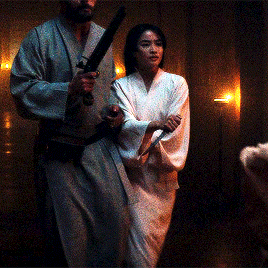
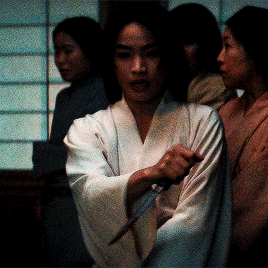
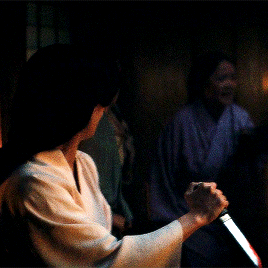
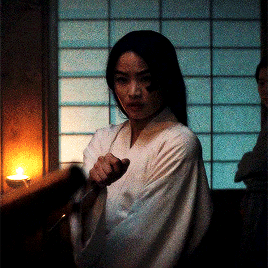

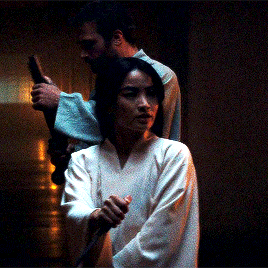
Mariko 🔪🔪🔪🔪🔪🔪
#shōgun#shogun#shōgunedit#shogunedit#shogun fx#toda mariko#akechi mariko#anna sawai#john blackthorne#creations#dailyflicks#adaptationsdaily#cinemapix#filmandtvedit#perioddramasource#perioddramaedit#smallscreensource#weloveperioddrama#tvedit#tvgifs#tvandfilmgifs#filmtvdaily#televisongifs#bblecher#chewieblog#useranimusvox#userhann
43 notes
·
View notes
Text
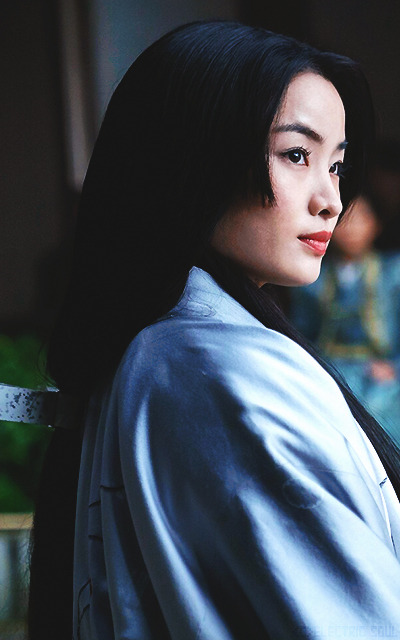
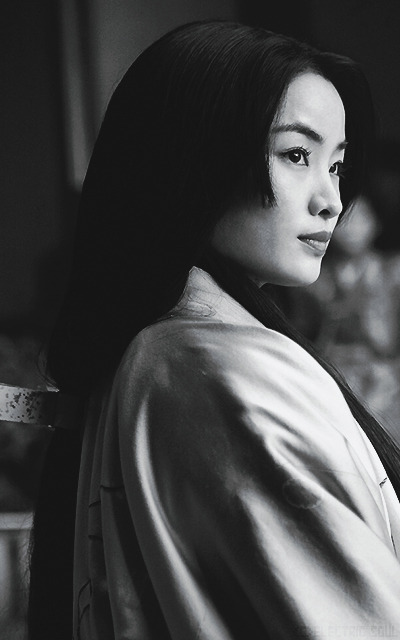
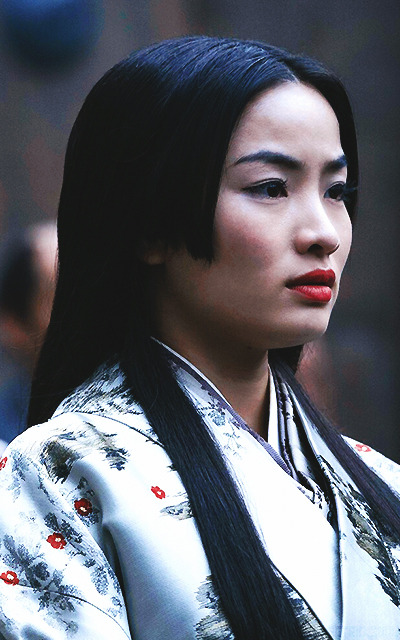
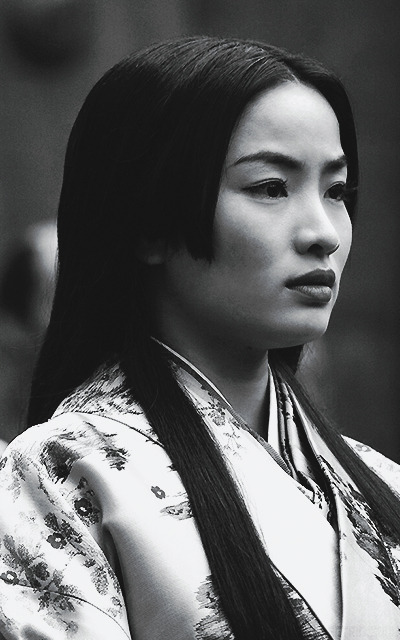
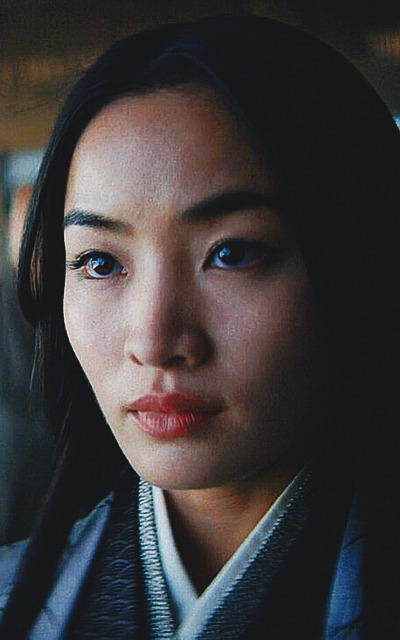
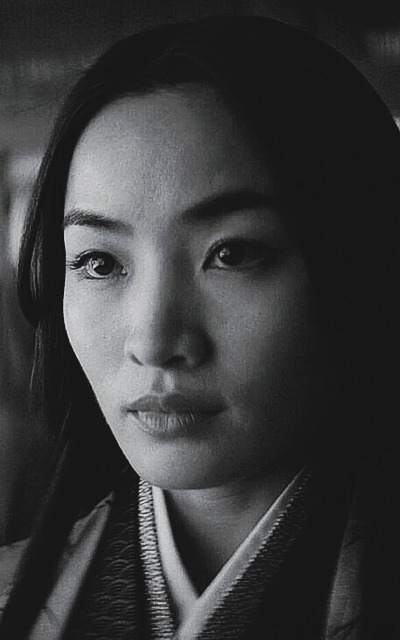

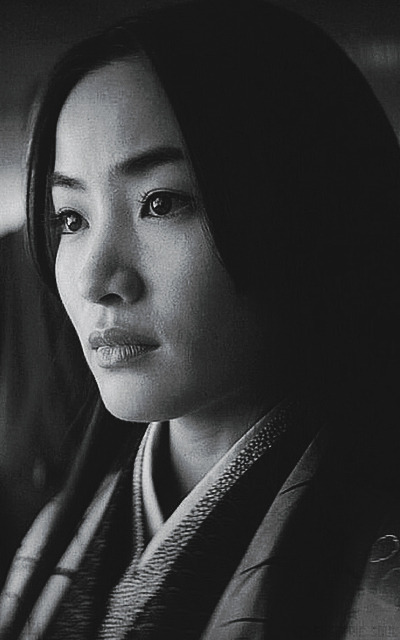
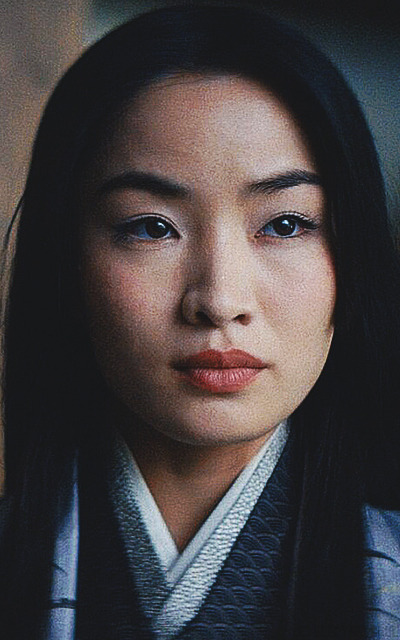
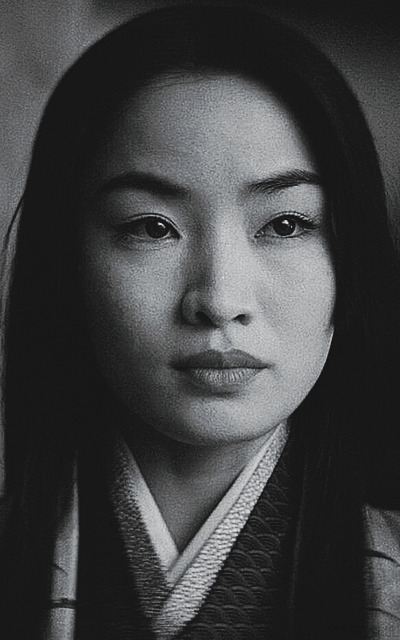
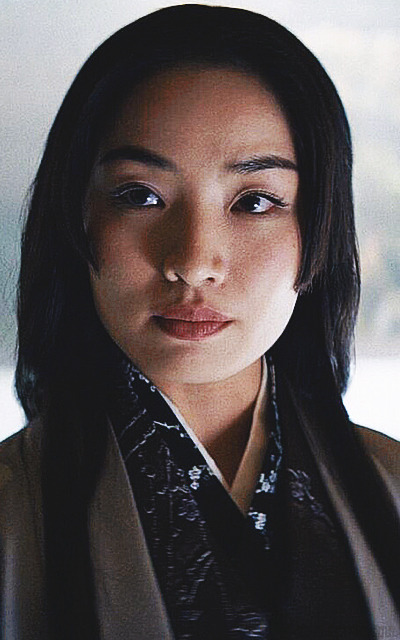
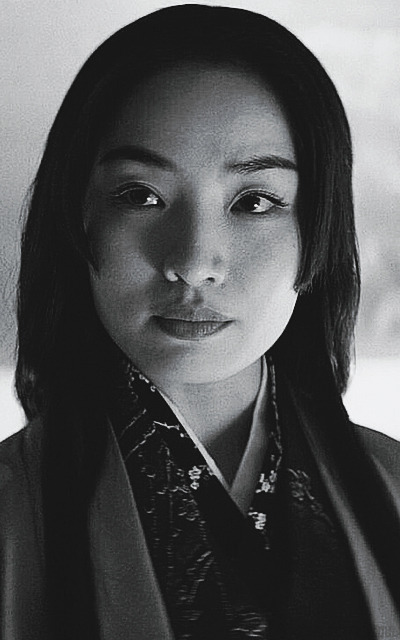
ANNA SAWAI (アンナ・サワイ / 澤井 杏奈)
as Toda Mariko / Akechi Mariko in Shōgun (2024)
#anna sawai#anna sawai avatars#shōgun#shogun#toda mariko#akechi mariko#fx shogun#shogun fx#澤井杏奈#アンナ・サワイ#period fc#japanese fc
21 notes
·
View notes
Text
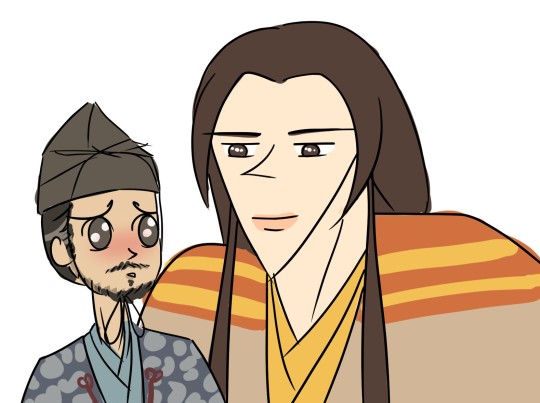
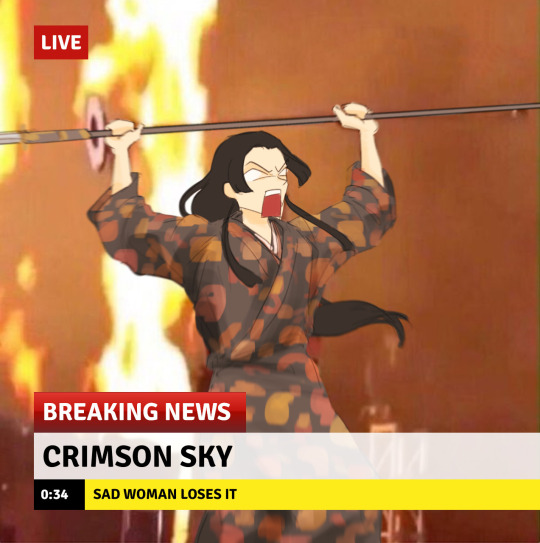
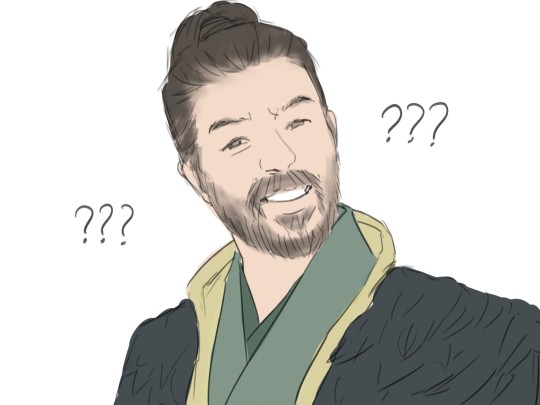
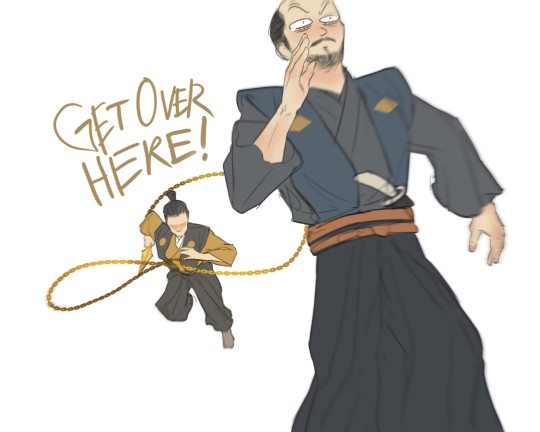
Shogun (2024) as shitpost, part two.
#ishido kazunari#ochiba no kata#akechi mariko#kashigi yabushige#yoshii toranaga#takehiro hira#fumi nikaido#anna sawai#tadanobu asano#hiroyuki sanada#shogun#fx shogun#mk scorpion#hanzo hasashi#my art
19 notes
·
View notes
Text



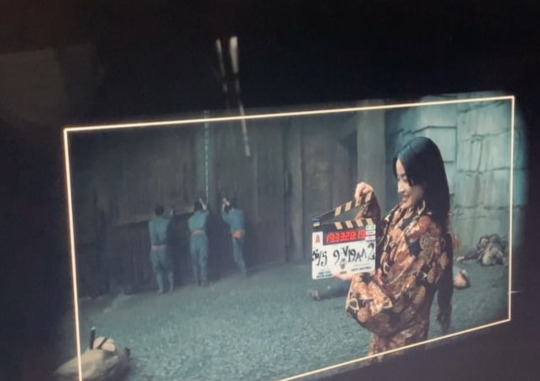

Some BTS pics of our beloved Anna Sawai via her own, Moeka Hoshi’s, Shinnosuke Abe’s and Ryan Yutaro Oka’s instagrams ❤️ // @shinnosuke.abe @moekappa382 @ryanyutarooka @annasawai
#shinnosuke reposting on his story saying the sense of loss has hit him 😭😭😭😭#shōgun#fx shōgun#shōgun cast#shōgun bts#anna sawai#toda mariko#akechi mariko#long live!#shogun#fx shogun
125 notes
·
View notes
Text
“Hell’s no place I haven’t seen before. Let it from your mind."
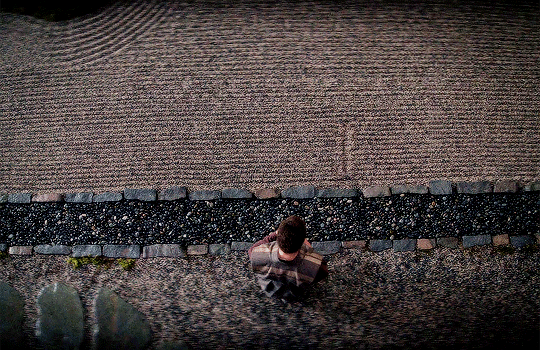
Gif: @yocalio
'Shogun showrunner Rachel Kondo revealed that the idea to have Blackthorne step up as Mariko’s second was initially “a shock” to her.
“It was one of those things that felt both surprising to us, but also inevitable. Like, naturally, this is the woman he loves. He doesn’t want her to writhe in eternal hell that he knows she believes in, right? I don’t even know if he believes in it, but he, this was his moment to look at her and to see her and to do something,” Kondo said.
“The one thing he does not want to do — he most doesn’t want to do — and he does it because of her, for her.”
Blackthorne’s poetic “last words” to Mariko during the seppuku scene were a suggestion from Cosmo Jarvis: “Hell’s no place I haven’t seen before. Let it from your mind,” to help him grapple with Blackthorne’s out of character decision to volunteer to kill the woman he loves.
“It was quite a challenge to find the motivation for a man to do that,” Jarvis said. “A man who hates unnecessary violence. Blackthorne hates unnecessary violence. And this would be the pinnacle of unnecessary violence and it’s somebody that he cares deeply for.”
“But, you know, that’s the joy of the work. You have to find motivations for these things and you have to do them and commit to them,” he said, explaining the genesis of the line, applauding the showrunners' collaborative nature for keeping it in.
According to Anna Sawai, Blackthorne’s decision to step up and second Mariko’s seppuku was “the biggest gesture of love that she feels from him.”


Gifs: @yocalio
“It’s when she realizes how much she means to him. Because he is a Protestant and he’s going against his religion and he’s taking her over himself. He’s allowing her to die a loyal Catholic and a samurai,” Sawai said during an interview earlier this week. “It’s a very romantic thing for her and she’s in a way kind of seeing him in different eyes because of what this means."
“He’s taking her over his own religion and beliefs,” Sawai explains of the powerful moment. “A couple scenes before that he’s asking her to keep living for him. And so I think that it just shows that he really, really cares, and that is the most romantic thing that you could ever do for someone that you love.”
Mariko is spared, for a night. A night that Mariko and Blackthorne get to share together. Although Yabushige’s treachery would result in Mariko’s death later that night, the two lovers get to spend one last evening in each other’s arms.
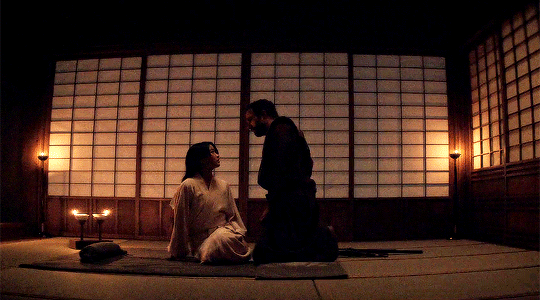
“It was just a moment of like, ‘I deserve this. We deserve this. We accept each other, we see each other and we can share this moment together,'” Sawai said, giving Mariko’s story a bittersweet, tragically romantic ending.'
Full interviews:
Anna Sawai Reveals the Moment Mariko Fell in Love With Blackthorne
Anna Sawai Details How Mariko’s Seppuku Attempt in Episode 9 Binds Her and Blackthorne Forever: “It’s a Very Romantic Thing for Her”
#shogun#shōgun#shogun spoilers#shogun 2024#fx shogun#perioddrama#shogun fx#anna sawai#cosmo jarvis#toda mariko#john blackthorne#mariko x blackthorne#dailyflicks#cinematv#tvandfilm#akechi mariko#my fucking heart hurts please help 😭
105 notes
·
View notes
Text
MAJOR SPOILERS FOR CRIMSON SKY
When Blackthorne stepped up to be her second as she was about to commit seppuku (suicide) in Shōgun‘s pivotal Episode 9, that was the “moment she realizes that what they share is much deeper than what she had anticipated,” Sawai tells TV Insider. “That’s the gesture that changes everything.”
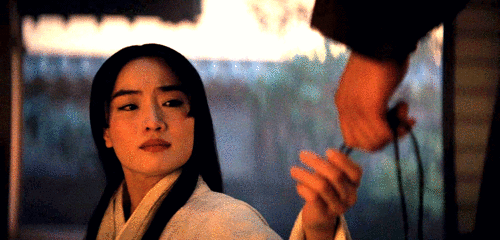
Seconding her seppuku means striking the fatal blow. Mariko would first stab herself in the gut, and then Blackthorne would decapitate her as the tradition mandates. That he was ready to do this for Mariko was the ultimate symbol of Blackthorne’s evolution from the beginning of the series to now. It’s the highest sign of respect that he can give, as it prioritizes her cultural customs and loyalty over his own desires for her to keep living. And he begged her to keep living.
“He’s taking her over his own religion and beliefs,” Sawai explains of the powerful moment. “A couple scenes before that he’s asking her to keep living for him. And so I think that it just shows that he really, really cares, and that is the most romantic thing that you could ever do for someone that you love.”
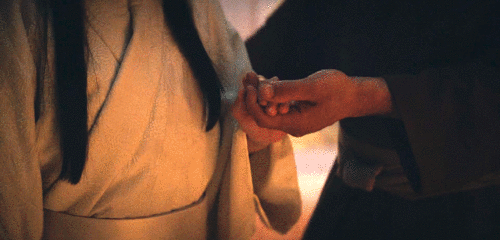



They slept together once more after the thwarted seppuku. The energy between them in that moment was a defiant refusal to deny their feelings any longer, initiated by a yearning Blackthorne. But even if Buntaro had died, Sawai doesn’t see a world where Mariko and Blackthorne would have ended up together forever. “I don’t think it was realistic for that to happen,” she admits.
Mariko was never in denial about her love for Blackthorne, even if she hid it deep within herself. “Circumstances are not going to let her be with him, and so you can’t keep chasing something that you’re not going to be,” Sawai says. “It’s not healthy to keep wanting to chase it, but it’s undeniable what they share. That connection is truly just their own thing. It’s very, very intimate.”
Mariko never believed they would end up together, but Sawai reveals that her translator definitely “holds onto” their connection as a comfort in tough times. She doesn’t let her guard down again, however, until circumstances push her to let go of all restraint.
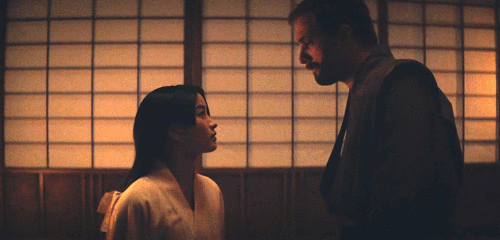

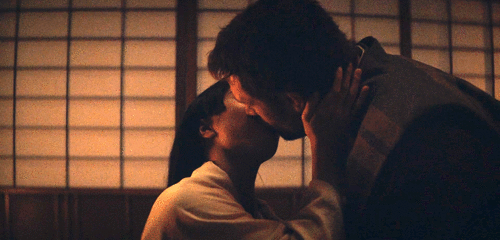
Mariko’s seppuku was stopped at the last moment by Lord Ishido (Takehiro Hira), but he sent a group of assassins to kill her later that night. When she, Blackthorne, Lord Yabushige (Tadanobu Asano), and other women were cornered and outnumbered, Blackthorne desperately tried to protect them from canon fire in a shed, whereas Mariko accepted death. “Anjin-sama, let it come,” she told her lover with tears in her eyes. You could see every ounce of love Mariko had for Blackthorne in this brief, tender moment before the blast killed her. Sawai played that scene as Mariko’s one chance to let all of her love for Blackthorne pour out.
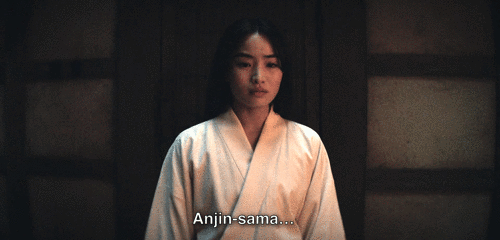
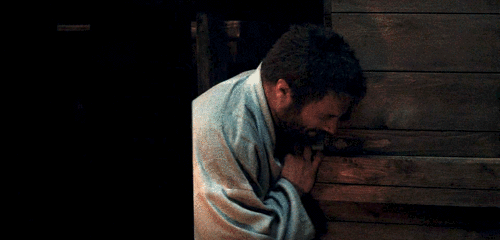
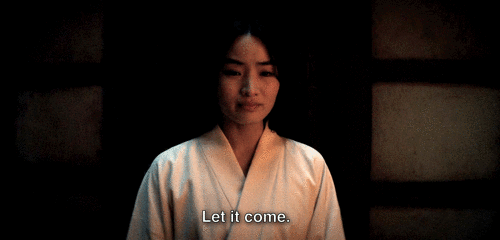

“I remember just looking at Cosmo/Blackthorne and feeling like this is her goodbye. She’s not going to be able to come up to him and hold his hand and say this stuff,” Sawai shares. “It was wishful also to just accept your fate because that’s something that Blackthorne couldn’t do. He’s trying to control everything, and she’s just someone who’s like, we live and we die. We control nothing beyond that. She’s just looking at him like, I’m going to go, but thank you. And I hope you understand.”
#shōgun#shogun fx#shogun#shogunedit#mariko#akechi mariko#lady mariko#anna sawai#john blackthorne#cosmo jarvis#mariko x blackthorne#blackthorne x mariko#john x mariko#my gifs#crimson sky#these scenes are really dark so my colouring is off#spoiler alert#interview
138 notes
·
View notes
Text
Shogun Series Finale 1x10
Wow….
Honestly, I can’t remember the last time I’ve cried this much while watching any singular episode of a show before (that’s if I ever have tbh), and that should be a testament to how ‘perfect’ that series finale was.
I know there will be some people who are upset that we didn’t get to see the Battle of Sekigahara, yet in my opinion, it would’ve been detrimental to have it. Yes, there have been incredible action sequences strung throughout the show, but Shogun was never leading to a climactic battle, instead, it was leading to Mariko finally being able to embrace a purposeful death.
The finale perfectly shows the effect that Mariko’s death had on everyone and everything. The show as a whole perfectly encapsulates Mariko’s line to Blackthorne that “life and death are the same, both can have value and purpose”. Shogun highlights each character’s worth, whether they are living or dead. In the end, it was more impactful to see the magnitude of influence that a handful of lives and deaths could have as opposed to that of a great battle.
The finale also does a brilliant job of reinforcing what we already know, that Toranaga is the master of trickery and deception. The scene where Toranaga tells Yabushige that he already knows the outcome of the war is so gratifying. After episode 9, as viewers, we almost already know the outcome as Mariko’s death seals Toranaga’s victory before the war even really had a chance to begin. While Toranaga finishes answering all of our questions, he leaves us and Yabushing wondering whether or not he was no better than everyone else when it came to power.
Shogun is a masterpiece that deserves all of the praise and recognition it is receiving. The performances, writing, cinematography, effects and music were perfect, everything was perfect. Shogun is a 10/10, and by the time awards season rolls around I do not doubt that it will manage to bag a plethora of awards.
#shōgun#fx shogun#yoshii toranaga#john blackthorne#akechi mariko#hiroyuki sanada#cosmo jarvis#anna sawai#anna sawai better get that emmy#this show was a masterpiece#I was crying the whole time while watching that finale#show review
79 notes
·
View notes
Text

Mariko x Blackthorne
(spoilers for Shōgun episode 1x09 'Crimson Sky')

I'm still devastated by how gently and tenderly she smiles at him as he's frantically trying for a way out, a way to change their fate. All that love laid bare in her tender gaze. She loves him with an almost unbearable sweetness.




The absolute tenderness held within Mariko's gaze of love for Blackthorne destroyed my heart. I can't even fathom it.

(these gifs were made by @dgct2 )

#dgct2 gifs#gifs: dgct2#shogun#shōgun#shogun spoilers#shogun 1x09#shogun 1x09 spoilers#lady mariko#toda mariko#mariko x blackthorne#blackthorne x mariko#marithorne#akechi mariko#shogun 2024#fx shogun#shogun fx
92 notes
·
View notes
Text
"Let your hands be the last to hold her."

#fx shogun#fuji my darling girl STOP MAKING ME CRY GODDAMIT#shogun spoilers#mariko x blackthorne#whoever came up with that line i just want to talk#my heart is in ruins i am going insane#akechi mariko
64 notes
·
View notes
Text
Who knew peak romance would be offering to cut off your lover’s head?
76 notes
·
View notes
Text

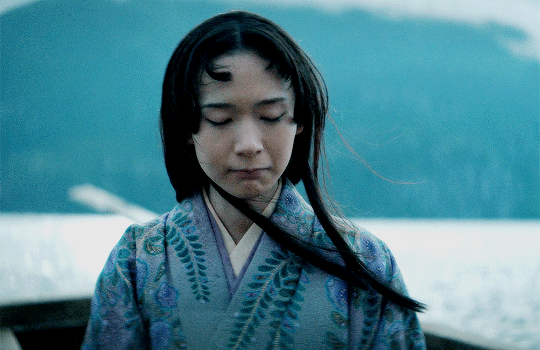
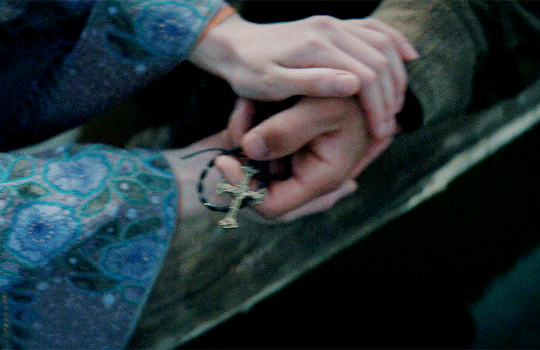
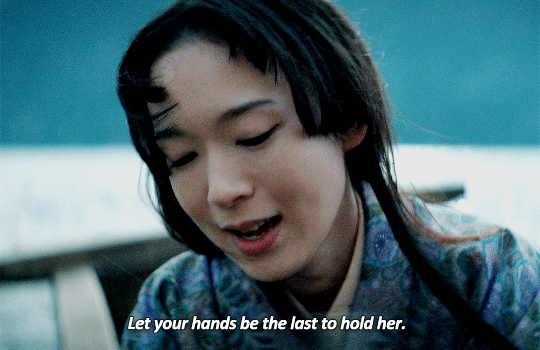
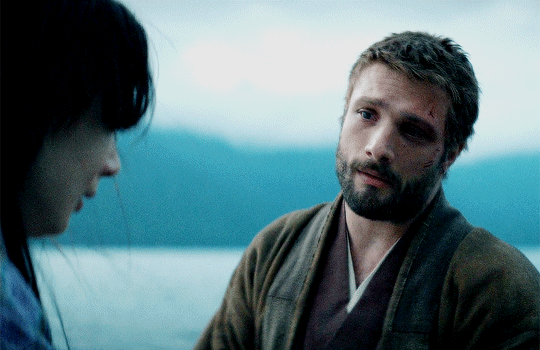
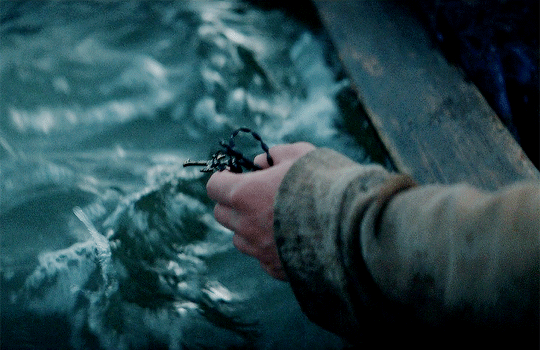
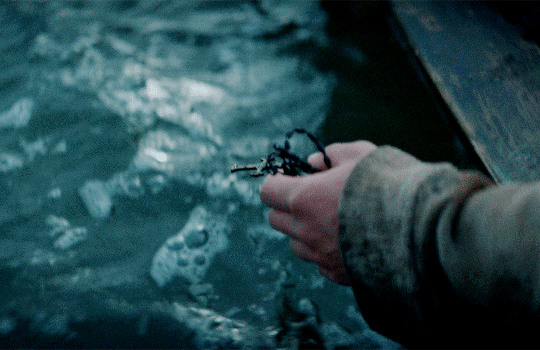
"She was with him forever, and he knew he would love her in the good times and in the tragic times, even in the winter of his life. She was always on the edge of his dreams."
- SHŌGUN by James Clavell
#shōgun#shogun#shōgunedit#shogunedit#shogun fx#cosmo jarvis#moeka hoshi#toda mariko#akechi mariko#john blackthorne#usami fuji#dailyflicks#creations#adaptationsdaily#filmandtvedit#perioddramasource#perioddramaedit#mariko x blackthorne#tvgifs#tvandfilm#television#televisongifs#useranimusvox
761 notes
·
View notes
Text
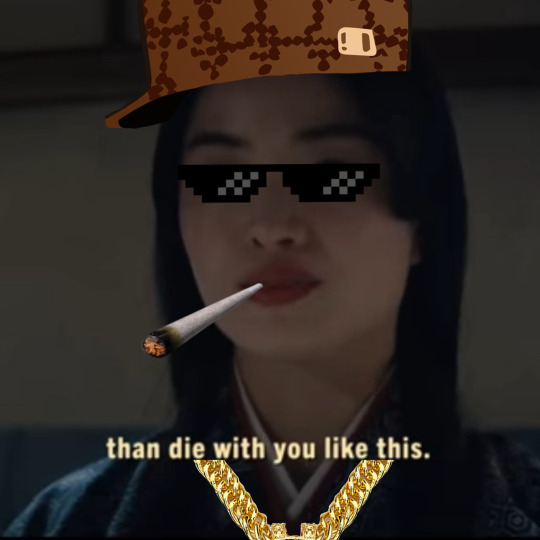
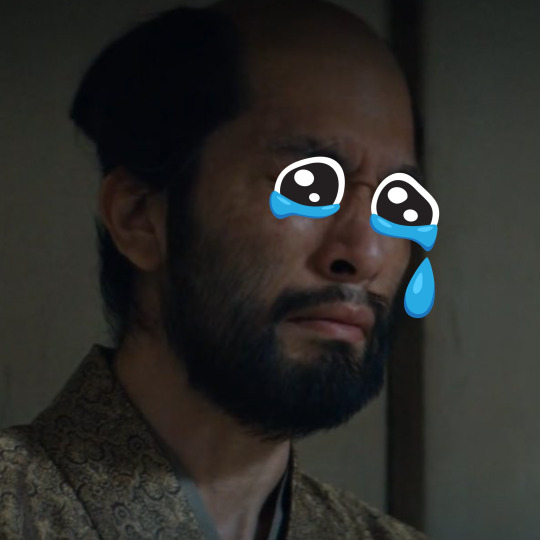
How this scene really went
#virgin buntaro vs chad mariko#thug life#shogun#meme#mariko you dropped this queen 👑#as for buntaro you dropped this 🤡#toda mariko#akechi mariko#buntaro
46 notes
·
View notes
Text
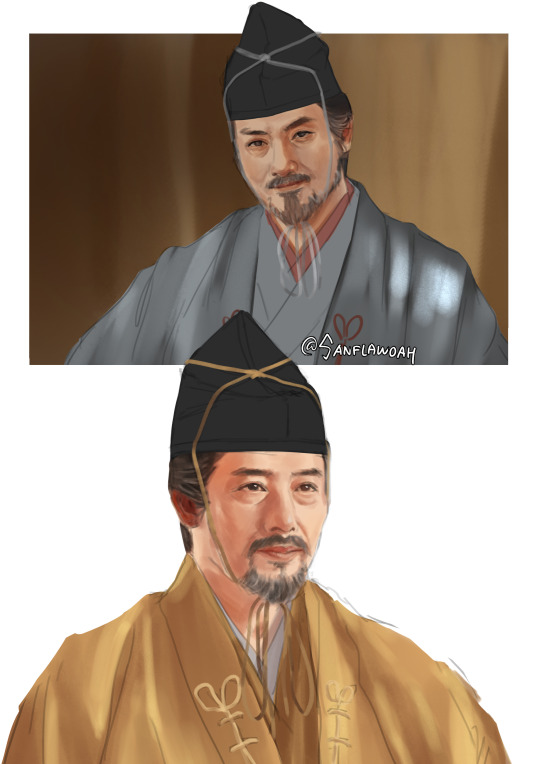
"I have an army..."
"We have Mariko."
#woe. crimson sky be upon ye#yoshii toranaga#ishido kazunari#shogun#fx shogun#AKECHI mariko#hiroyuki sanada#takehiro hira
76 notes
·
View notes
Text
Shōgun Historical Shallow-Dive: Part 1
Does everybody else's heart hurt? Good! Let's get learning. These characters and the people that inspired them all deserve their own post, but here's a quick one if you're wondering what happened. This is a shallow-dive because the history is extremely complicated, and a condensed version of just the events leading up to Sekigahara (the battle depicted in the finale) take up entire volumes of history. I'll do my best to answer questions about what happened to our three protagonists, in the show, as well as real life 🙇
One note: given I'm not a professional historian, I've got no obligation to not have biases and favourites. I've tried to keep most of them out of this, but if you want to punish yourself by trying to keep track of who's who in the Azuchi-Momoyama period, this book is the best English-language overview.
What happened to Toranaga (Tokugawa Ieyasu)?
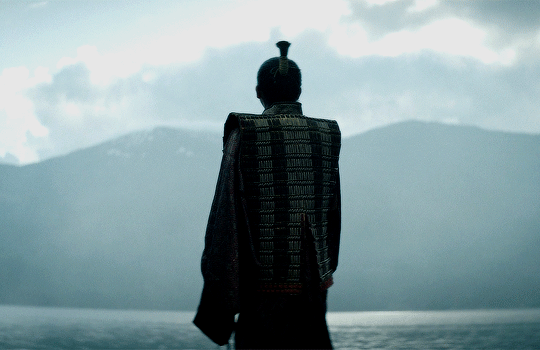
Gif: @yocalio
I am not as strong as I might be, but I have long known and practiced patience. And if my descendants wish to be as I am, they must study patience. - from The Legacy of Ieyasu Tokugawa
In the book, Toranaga reveals that it had been his aspiration to be Shōgun from the very beginning. That was what drove his alliance with the Taiko, that was what drove his feigned alliance with the Heir.
History follows a very similar path. I re-read some chapters on the battle of Sekigahara last night, and there is no easy way to explain it, but: the result of Sekigahara (an enormous, two-day battle with 200,000 samurai and ashigaru warriors in the field) was an enormous victory for Tokugawa, Toranaga's real-life counterpart.
Years - sometimes decades - of scheming by Tokugawa had made Ishido/Ishida's Western Alliance completely fragmented. In the months leading up to the period displayed in the show, Toranaga was calling in a lifetime of marriage alliances, diplomatic advantage, defensive pacts and childhood friends who'd risen to high status. Re-reading the sources, the names of all the lords of all the important fiefs and castles makes my head spin, let alone the ones that turned out to be pivotal to Toranga/Tokugawa's victory. But it was a resounding victory, and by both the numbers and the disposition of forces, he should have lost.
Historians have a consensus that if the 'Western forces' of the Heir had have fought together with a unified command structure, they would have won, easily. But they didn't - orders from Ishido/Ishida were ignored, Toranaga/Tokugawa endured onslaughts, and the Regents' opposing armies eventually fractured and melted away. This was a last-of-an-era battle. Families were fighting on either side, every single unit that could be brought to bear was on the field. It is no exaggeration to say Sekigahara is one of the few, unambiguous battles upon which the beginning of a historical era came down to.
Toranaga/Tokugawa triumphed because he spent decades building unity of purpose and strong alliances, simultaneously sowing division amongst the Regents, who ultimately balked at being commanded by a bureaucrat like Ishido/Ishida. Whilst there was no one decisive moment of an extremely bloody, rainy, two-day battle, the fact that Ishido/Ishida's forces refused to be told what to do by someone of lower status was the main theme of their defeat. A crucial army stationed on the hill stayed still, refusing to commit to either side, until Toranaga/Tokugawa fired muskets into their ranks. They made up their mind, and attacked Ishido/Ishida's Western army. Ishido/Ishida's one trick of firing a flare to commit the reserve army didn't work. The commander ignored it. Instead of being there to fight for something, Ishido/Ishida's coalition was there to oppose someone. They all had different reasons. And ultimately, the man that brought them together didn't command enough respect to command a battle.
As our show Toranaga said, the Regents fell upon each other. He might have been a bit optimistic about how and why this would happen (they fell over each other in retreat, and it took two days of horrific combat), but it happened. Tokugawa Ieyasu was famous for richly rewarding former enemies, and most of those he defeated kept their heads. This reputation is a strong incentive for leaving the field when things start going Tokugawa's way.
The two exceptions were Ishido/Ishida, and Kiyama/Konishi, both beheaded in Osaka (Ishido, bizarrely, was upbeat about his fate, until seconds before the sword came down). Killing Ishida was the obvious move, as the man schemed and bitched so much he caused a civil war. Killing Konishi was more calculated - it opened up his trade-hub in Kyushu to being ruled by a fervent Buddhist daimyo and ally of Tokugawa.
Toranaga/Tokugawa forces soon captured Osaka Castle after the battle of Sekigahara, and with it, the Heir.
Toranaga/Tokugawa 'reluctantly' accepted the Imperial appointment of Shōgun three years later, in 1603. In 1605, he abidcated, passing the title to his most malleable and competent son, Hidetada. He was the real power behind the throne and ruled until his death in 1616.
The year before he died, he was able to fully secure his legacy. The Heir (in real life, Toyotomi Hideyori) had begun to gather daimyo to Osaka castle who were opposed to Tokugawa. Tokugawa used the flimsiest of pretexts - the opening of a shrine - to order the Heir out of the castle. He refused, Tokugawa forces besieged the castle - twice. The first one was called off because cannon fire nearly killed Ochiba no kata, and she pushed her son to sue for peace. By the second siege, there would be no peace: the Tokugawa forces defeated all oppoosition, and secured the legacy.
Toranaga/Tokugawa's descendants would rule for 250 years of internal peace and external lock-down of the country from barbarians (and Christians), except for limited trade.
The big question: did Toranaga/Tokugawa really want to be Shōgun from the start? History tells us, rather unambiguously, yes - before the campaign, he was writing his 100 Articles for ruling Japan, which would be instrumental for his family holding on to power and preventing internal strife. His plan may well have gone back to his formative, teenage years. At the very least, it is highly likely it was solidified when Toranaga/Tokugawa was a vassal of the Dictator Koroda/Oda Nobunaga - the man Mariko/Hosokawa Gracia's father assassinated, who was brutal even by the standards of the day. We don't have time for him, the Taiko, and Mariko's father today - but my opinion is that the motherfucker firmly deserved to be assassinated, and the only amazing thing is that the inspiration for Mariko's father was able to hold off for so long.
But that killing set off a chain of events that would lead to Toranaga/Tokugawa becoming sole ruler of a unified Japan. So much of history is contingent on individual actors and random events. It didn't have to happen. It was extremely unlikely. But, through patience (and by my reckoning, a lot of luck), he made the world he wanted to see. Whether that was worth the price in lives is for the reader to decide.
But by all accounts, Toranaga/Tokugawa died very satisfied in the knowledge that his legacy was secure, his realm was unified, and, finally, at peace.
What happened to Mariko (Hosokowa Gracia)?
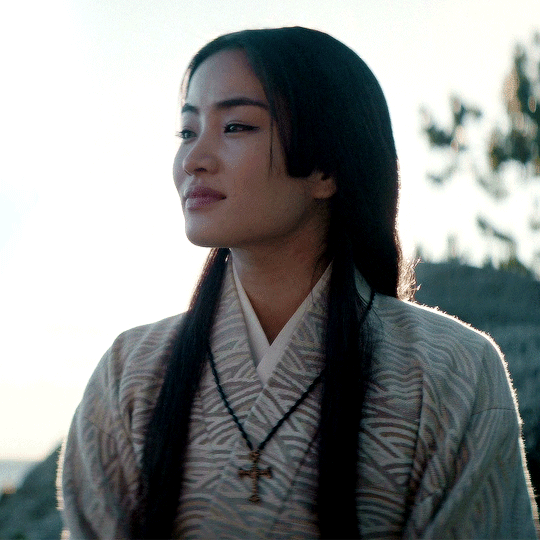
Gif: @yocalio
As is probably obvious, Mariko's purpose was fulfilled before the conclusion of the show. As is also probably obvious, her historical counterpart - Hosokowa Gracia - did not have an affair with an English sea pilot (😢). She did, however, change Japanese history, and tipped the balance of noble support towards Toranaga/Tokugawa. Her death had meaning.
The framing of her marriage to Buntaro and exile after her father's successful assassination of a brutal dictator is almost exactly correct. She was one of the most desirable, valued and accomplished young noblewomen of the day. The stain of the name Akechi would haunt her for the rest of her life. Real life Buntaro, Hosokowa Tadaoki, genuinely sent her away for two years to save her life. The Hosokowa family even went so far as to pretend that she had died, to save her from the Taiko's vengeance. Whilst her marriage was an unhappy one (though not, as far as is known, abusive), she was beloved by the head of the Hosokowa clan, the show's Hiromatsu. They went to extraordinary lengths to keep her safe.
Her main comfort in her life was her faith. It's perhaps here that we get the strongest through-line from Hosokowa Gracia to Mariko - unafraid, intelligent, and fierce.
She first came to learn about Christianity from her Christian maid, who extolled the virtue of the faith, and the opportunities for intellectual stimulation theological discussion could bring. In 1587 (five years after her father assassinated the dictator, three years after she returned from exile), she decided to take action on it. She snuck out of Osaka Castle and visited the main church in Osaka - she had lively conversations with the elderly Father-Visitor, and was an excellent pupil of both Portuguese and Latin theological texts. I don't know if you guys have ever tried to read those things, but even in translation, they are torturous. This woman was extremely intelligent.
As a noble woman of the Taiko's court, she knew he was about to issue an edict outlawing Christianity. Being the (excuse the language) absolute fucking badass that she was, she had her maid (baptismal name Maria) baptise her before the edict was issued, transforming from Hosokowa Tama to Hosokowa Gracia. Even though she had to keep her faith a secret due to the Taiko's edict, she found a way to hold on to it. She had a special sake cup made with the Hosokowa mon emblazed on the lip, which, on very close inspection, was actually a Christian cross.
During this time of her religious conversion and education, a primary source from a Jesuit priest says that 'I have never disputed with a woman of such clear judgement, and such definite knowledge.' She was known for being fiercely intelligent, and this is commented on in many European letters and journals that have remained from the Catholic church's time in Japan.
Her relationship with her husband - like Buntaro, a senior retainer of Toranaga/Tokugawa - was frosty. They never reconciled after her father's (Akechi Mitsuhide) rebellion, but her husband did recall her from exile when it was safe to do so, and she lived to serve a very similar purpose to Mariko in the book and show. By virtue of not being an interpreter, she was less close to Toranaga/Tokugawa than in the book and show, but she was still dedicated to her clan and her clan's overlord, as will become clear.
Just as in the show, Hosokowa Gracia agonized at the thought of seppuku putting her soul in mortal danger. But she perceived her duty to be to ensure death before being captured or otherwise dishonoured.
To put it bluntly, Ishido (Ishida in real life) fucked up. Before any military manouvers had begun, he went to seize hostages of friends and enemies alike throughout Osaka castle. His forces tried to forcibly seize Hosokowa Gracia from the family quarters. She gave orders for her senior retainer to kill her, her daughter, and set fire to their section of Osaka Castle, so that none could be taken and subjected to dishonour. She arranged with this samurai to stand on one side of a shoji screen, facing him. He stabbed her through the heart with a naginata. She died, satisfied in the knowledge that:
...the death was not suicide, and her soul would doubtless be spared from the torments of Hell.
Although not doing this directly on the orders of Toranaga/Tokugawa, it's highly likely she knew that she was making a statement (many of the other hostages went quietly). This furthered his cause immensely. Inspired by Hosokowa Gracia, families streamed out of Osaka Castle and other Regent-held castles by any method they could. Her example ignited a firestorm of controversy surrounding the gall of a jumped-up bureaucrat (a reputation Ishido/Ishida would never escape) forcing the death of one of the era's pre-eminent noblewomen. Although her husband was relatively unbothered by her death, her father-in-law - the book/show's Hiromatsu - was furious. Because of Hosokowa Gracia and his granddaughter's death, he immediately fortified his border castle.
He defied a large [Ishido/Ishida] army of 15,000 men with only 500 men of his own.
Many of [Ishido/Ishida's] commanders held [Hosokowa Fujitaka/Hiromatsu] in such high regard that they went through the bare motions of laying siege. On a regular basis, gunners 'accidentally' forgot to load their cannon with iron shot, and so Tanabe Castle's walls reverberated daily to the harmless booming of blank gundpowder explosions. [Ishido/Ishida's] military offensive had launched to a disastrous start.
The siege only ended because of an imperial decree (it's a long story - Fujitaka/Hiromatsu knew an oral tradition special imperial poem that risked dying with him, nobody could refuse the Emperor). More than this, any chance Ishido/Ishida had of convincing skilled and respected generals to commit to his side ended with Fujitaka/Hiromatsu's defiance. Such was the respect that he commanded, and such was the rage he felt at the death of his daughter-in-law, that he worked tirelessly to gather support for Toranaga/Tokugawa, despite his advanced years.
Mariko/Hosokowa Gracia's contribution was an inflection point to what many samurai, busho and daimyo were suspecting - that Ishido/Ishida was a snake bitch who couldn't be trusted (I believe that's the correct historical term). Her actions galvanized resistance against him, and continued to spread the wildfire that would seal his defeat on the battlefield of Sekigahara: 'Why are we taking orders from him?'
Importantly, Hosokowa Gracia's remains were gathered by a Catholic priest, and given a Christian burial in Osaka. From everything we know of her, this would have been very meaningful indeed. Just as with Mariko in the show's depiction, Hosokowa Gracia's death was not senseless or without meaning. It meant something, and continues to resonate through the centuries.
What happened to John Blackthorne (William Adams)?

Gif by @cinematic-gif-archive
The short answer: imagine an alien landed in America. It was smart enough to avoid death. It ended up chief special advisor to Obama, and they became bros. That is William Adams's life.
First things first: Blackthorne stays in Japan. 'Old Rich Blackthorne' scenes are basically fever dreams. I was worried when the episode opened with a flash-forward to an old man living in Tudor comfort. This would be a huge change from both the book, and history. The novel ends with Toranaga confirming that his plan is for Blackthorne to never leave Japan. Blackthorne finds his place there. In history, the same is true of William Adams.
In episode 10, the 'is this a flash-forward?/is this a dream?' question is answered halfway through the episode. Blackthorne drops Mariko's cross over the side with Fuji's family ashes. As soon as that's done, the aged visions of Blackthorne disappear.
For those who are more textual than visual: the episode is titled A Dream of a Dream (a play on the title of the Taiko's death poem). Concussed, grief-stricken Blackthorne is dreaming of the dream he used to have - returning to England with riches and glory, his family name secure, with every comfort Queen Elizabeth the First can offer a pirate-explorer like Sir Francis Drake or Sir Walter Raleigh. But as soon as he lets go of Mariko's cross into the water (earlier, actually, when he sincerely attempted seppuku to try and save the people of Ajiro) that dream stopped appearing. The dream he had of exploiting Japan for riches and glory was gone, replaced with the reality of the life he is left to build.
In the show and the book, Toranaga is explicit about never letting Anjin-sama/Blackthorne leave Japan. If he builds new ships, Toranaga will burn them again. He needs Blackthorne's knowledge, expertise, and - in a bizarre twist of fate - friendship. We leave him hauling his wreck from the harbour, ready to salvage the keel and spars, to build a new ship in Japan.
So how does this marry up with history? Extremely accurately. As far as we know, the historical William Adams was slightly less of a pirate/privateer than the book/show's John Blackthorne. His hatred of Catholicism was more driven by their fervent desire to kill him, which they kept up for nearly a decade. His interest in exploration, in the show and in the historical, was genuine.
The show's story very closely follows what actually happened in real life (again, sans romance... although he does have love in his life, which we'll get to). His crew were initially imprisoned, he was summoned by Toranaga/Tokugawa, and met with him many times to discuss his knowledge of the outside world, trade, and Christianity's impact in Asia. The Jesuits did pester the Council of Regents, and Toranaga/Tokugawa in particular, to execute him. Toranaga/Tokugawa refused, saying this barbarian had done nothing to harm Japan or its people. The Jesuits would not forget this.
He did train elements of Toranaga/Tokogawa's army in how to work the cannon his ship possessed - a skill he possessed, but no one else was willing to offer. He actually followed Toranaga/Tokugawa to several battles. Recent primary source evidence has revealed it was highly likely he was actually at the Battle of Sekigahara, which is a very recent development in the historiography of his life. It is just bananas insane, but it demonstrates just how useful (and likeable) Blackthorne/Adams was to Toranaga/Tokugawa.
I've read two biographies of William Adams, and he was very, very like the Blackthorne portrayed by Cosmo Jarvis. Other Europeans in Japan complained that he was arrogant and dismissive - historians see this as Adams adapting to his station in Japanese society, and being extremely frustrated with European manners and bearing in Japan.
Once Toranaga/Tokugawa became shōgun, Adams - already a samurai - was made hatamoto, and forbidden from leaving Japan. He was granted many generous cuckoos (250 of them!), an estate in Edo, a fief at the entrance to Edo bay, and rose to become Toranaga/Tokugawa's chief trade advisor. During Toranaga/Tokugawa's remaining life, he built two Western-style ships (which Tokugawa came aboard and was very pleased with - that's nice!), and took over piloting duties of Portuguese and Spanish ships making landfall in Edo, pissing off the Catholics to no end.
On Ieyasu Tokugawa's death in 1616, his holdings and fief were confirmed by the new shōgun, Ieyasu Hidetada. But his relationship with the court wouldn't be the same. My reading of the sources leads me to believe that James Clavell was right here: Toranaga/Tokugawa Ieyasu genuinely liked Blackthorne/William Adams, and wanted him around.
As more and more Europeans arrived in Japan, including the English and the Dutch, Adams served as translator for them, and - for the Enlgish - fixer whenever they did something barbaric and rude that would warrant execution. He seemed to view spending time with the (no joke) drunken, whoring, disgusting-smelling English trading factory members as an extreme annoyance. He seemed happiest at sea, and at his mansion in Edo, where he married the daughter of a merchant in 1613. Whilst her name is lost to the historical record, they had two children, Joseph and Susanna.
He wasn't a deadbeat dad - he wrote to his wife back in England, explaining that he could not return. She was a firebrand, and eventually extracted a form of life insurance from the Dutch company that had contracted Adams's piloting services. Partly she was able to do this because of a proclamation issued by Toranaga/Ieyasu Tokugawa: 'William Adams was dead the day he was made samurai, and Miura Anjin - the pilot of the fief of Miura - was born.' That sounds like a badass quote I've made up, but that's one of the English translations of Tokugawa's proclamation.
Adams kept up his maritime adventures, charting the Japanese coast, going on several trading missions to Southeast Asia (sailing to Thailand and meeting with the King of Siam, furthering his amazing ability to charm and dazzle). He struck up firm friendships with members of Tokugawa's court, fellow Japanese merchants in Edo, and the much more polite Dutch traders, despite the tensions that had grown between their two countries.
There's an important aspect of his legacy that endured for centuries. Toranaga/Tokugawa, suspicious of what he had learned of Catholic conversion and invasion of other Asian states, was already disposed to be wary of the Church. The Church in Japan would not let Adams rest, attempting to kill him, convert him, bribe him, and offer him passage home in 1614 on a Portuguese ship. In the same year Portuguese priests claimed that only Spanish miners had the skills to open up the mineral wealth of Japan. Adams warned the shōgun, again, that this was the Catholic way - first the priests, then the conquistadores.
Influenced by these reports and counsel, and because the Jesuits legitimately were conspiring to do the shit Adams accused them of (always a tough charge to defend), Toranaga/Tokugawa Ieyasu expelled all Portuguese priests in 1614, and demanded all Japanese Christians recant. Apart from this leading to the Dutch being the only nation allowed to conduct trade with Japan, this was the end of Japanese Christianity, until the country was forced open in 1855. Christianity never took root in the same way it would in places like Brazil and the Philippines. Was William Adams the only factor in this development? No. Was he a factor? Yes.
He died in 1620, after twenty contented years in Japan and Asia. His will stipulated that his estates and belongings be split evenly between his family in England and Japan. One of Adams's colleagues recorded that Ieyasu Hidetada transferred lordship of Adams's fief to his Japanese son, Joseph, as well as his katana and wakizashi. His line fell out of the historical record, but memory of and monuments to the Anjin remain in Japan.
Faring Well
Shōgun, the book, was fiction, written by a man fascinated by Japanese history, driven by a desire to bring it to the world. He was overwhelmingly successful. It was an excellent start, and even fired up some fascinating academic discussion at the time that I'd definitely recommend. The 2024 adaptation, in my view, changes many of the elements that have aged poorly, were flat-out wrong to begin with, and - like all great adaptations - adds to the work, rather than cheapening it.
Despite being based on real people, the fictional characters created for the show - Blackthorne, Toranga, and especially Mariko - feel real. That is an amazing achievement.
I hope this opens up an interest in Japanese history for some viewers. Being able to visit the places where these events took place is a truly awesome experience. Like all history, it's for individuals to judge what they think of the players.
Hiroyuki Sanada said that he admires Tokugawa Ieyasu because of his ability to bring forth 250 years of peace out of nearly 500 years of chaos. Was Ieyasu motivated by altruism, or self-interest? Does it even matter?
Anna Sawai saw in Hosokowa Gracia a moving, powerful woman, deeply committed to her faith, and to doing what she believed was right in the context of her time. As a person without faith myself, I found this portrayal of genuine belief extremely moving. The demonstration of her convictions was one of the most amazing performances I've ever seen.
And as for the English pilot, Cosmo Jarvis said he wanted to capture the restlessness of Adams, his slow transformation and growth, and the unique qualities that allowed the man to survive and thrive in an extremely deadly time. One thing he nailed that I think even James Clavell messed up was how deepy strange William Adams was. Not weird, not insane, but just a very singular individual. Biographers talk about his aloof, detached, self-aware nature being misconstrued as arrogance by Europeans who encountered him in Japan. Part of it was his annoyance at their inability to learn how to be in Japan; part of it was that he was simply built very differently. In embodying this, I think Cosmo Jarvis succeeded amazingly.
From what we can find in the historical record, William Adams and Hosokowa Gracia may not be 'great' in the sense that Tokugawa Ieyasu was 'great'. They did not build an era. To borrow a phrase from one of my favourite historical writers, whilst they may not be 'great' people, they were good people. That is vanishingly rare in the history we celebrate, and I think, for that reason alone, it's important to remember them, and the things they lived and died for.
#shōgun#shogun#shogun fx#anna sawai#cosmo jarvis#toda mariko#john blackthorne#anjin#adaptationsdaily#perioddramasource#hiroyuki sanada#yoshii toranaga#akechi mariko#history#history lesson#japan#japanese culture#tokugawa ieyasu#hosokowa gracia#william adams
106 notes
·
View notes
Text
youtube
So, now I’m crying again. They really were doomed from the start.
#shogun#shōgun#toda mariko#john blackthorne#anna sawai#shogun fx#cosmo jarvis#mariko x blackthorne#akechi mariko#blackthorne x mariko#doomed lovers#shogunedit#my heart#heartbreak#Youtube
21 notes
·
View notes
Text
Tagging Mariko as Toda Mariko instead of Akechi Mariko feels like a disservice to her after episode 9 😔
#shogun#shogun spoilers#akechi mariko#toda mariko#SHE'S FREE OF HER BASTARD HUSBAND NOW#she reclaimed herself!!!
20 notes
·
View notes